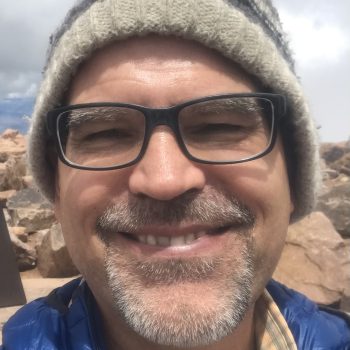
Current position: Science Teacher, Windham High School RSU14
Degrees:
- PhD in Public Policy with a concentration in Educational Leadership and Policy, University of Southern Maine, 2022
- MSEd in Educational Leadership, University of Southern Maine, 2018
- BS in Physics, Bates College, 1986
Dissertation
Title: Personal Experiences of White School Leaders in Addressing Issues of Race within Predominantly White School Communities
Abstract: Research on the effectiveness of, and need for, culturally competent and antiracist school leadership primarily focuses on communities in which student populations are majority non-white. This study addresses a gap in the literature around the capacity of white administrators to address education-related issues of race in predominantly white communities. The purpose of this study is to better understand the personal experiences of white administrators in Maine schools when addressing issues of racial difference within rural and suburban school districts. The questions guiding this study are: 1) What are the personal experiences of white administrators serving predominantly white school communities in addressing issues related to race within their school communities, and 2) what insights and recommendations do these administrators have for preparing school administrators to lead on issues of race? This study utilizes a phenomenological research design that employs semi-structured interviews. Sixteen current K-12 public school principals and assistant principals from across the state of Maine participated in the study. Participants generally had little or no personal formative experience with racial difference prior to assuming their current leadership positions, and race was not addressed in the administrator preparation programs that they had attended. Attending to issues of race as school leaders was unnerving and emotionally burdensome; participants felt anxious, insecure, and unprepared. District administrators provided little guidance or assistance in navigating race, and participants generally felt rudderless and isolated as they worked to resolve the incidents that they faced. Participants urge leadership preparation programs to holistically incorporate purposeful explorations of race into licensing coursework, and to better prepare future school leaders to lead on issues of race in predominantly white suburban and rural school districts.

